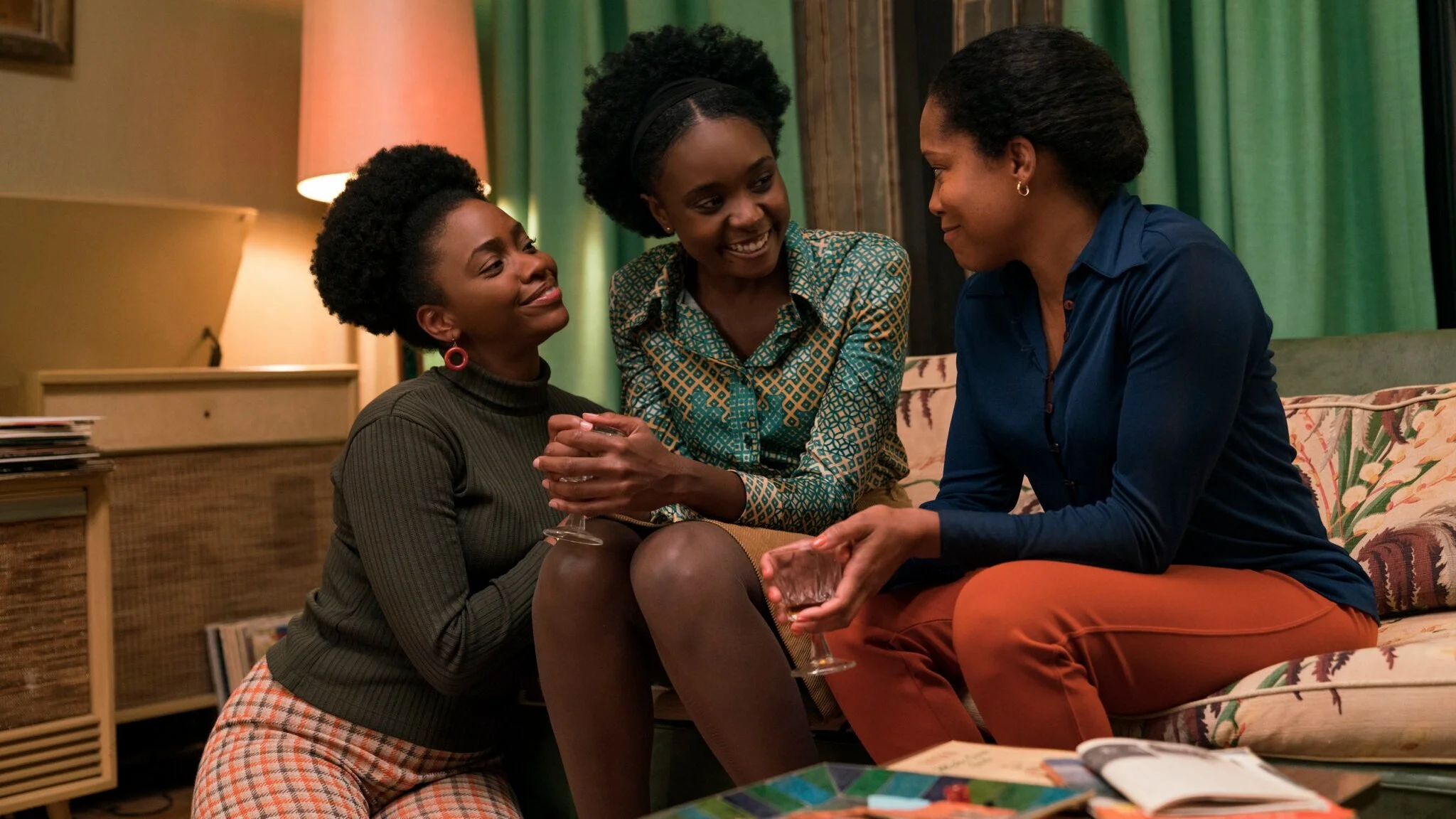If Beale Street Could Talk
A New York drama lacking the sharp edge and impact that would seem appropriate.
Teyonah Parris, KiKi Layne and Regina King
Watching If Beale Street Could Talk is a much stranger experience than I had expected. On paper, there is no surprise that in seeking a successor to his fine Oscar winner, 2016’s Moonlight, Barry Jenkins should choose to adapt a novel by James Baldwin. After all, the outstanding documentary I Am Not Your Negro (also 2016) brought Baldwin’s name back into the limelight and as a commentator both in fiction and in non-fiction on black lives in America James Baldwin is unequalled. It would be most unlikely for Jenkins not to have been faithful to the original at least in its essentials yet the surprise here is that for me, not having read this particular novel by Baldwin, If Beale Street Could Talk emerges on screen as a work so very different from anything that I would have anticipated.
The first part of Jenkins’s film plays as a romantic movie about young love set in Harlem in the 1970s. The lovers are 19-year-old Tish Rivers (KiKi Layne) and 22-year-old Alonzo Hunt (Stephan James) who is known as Fonny. Friends since childhood, they are happily ready when Tish finds herself pregnant to opt for marriage. Tish’s parents (Colman Domingo and Regina King) are immediately supportive of this as is Tish’s sister (Teyonah Parris). But, while Fonny’s father (Michael Beach) shares this attitude, his mother, so religious that she is referred to as a holy roller, disapproves of her son being involved with an unmarried mother even if he is the child’s father.
The two young leads here are very engaging which helps the early scenes to play well (Layne in particular has a natural unforced presence that belies the fact that this is her first leading role). Regina King is strong in support and a further asset is the potent period atmosphere enhanced by the music (a record player is the source of pieces by the likes of John Coltrane and Miles Davis). One is quite ready to adjust to a popular love story, for that is something that black cinema audiences are surely entitled to even if a writer as serious as Baldwin seems an unlikely source for it. However, in time the tone changes drastically and we find Fonny, wrongly identified, being arrested and accused of rape. At this point, Tish’s mother and a young white lawyer (Finn Wittrock) who takes on the case become the prime movers in an attempt to prove his innocence.
If Beale Street Could Talk now looks set to become a crime story leading to a trial, something rather different from the romantic first half but a transition that could work by incorporating another popular genre and thus make an acceptable whole. But in fact, the tale told proves to be unusually short of incident making it an underpowered drama. That’s all the more apparent because the film, getting slower and slower and ending somewhat inconclusively, is drawn out to close on two hours. Just occasionally a sharp scene does provide the kind of social comment that one expects from Baldwin (the most memorable example involves Fonny’s friend Daniel Carty played by Brian Tyree Henry discussing his sufferings in prison). But overall If Beale Street Could Talk is totally lacking in any sense of urgency. This is hugely disappointing because it plays down the continuing relevancy of the subject matter.
MANSEL STIMPSON
Cast: KiKi Layne, Stephan James, Regina King, Colman Domingo, Teyonah Parris, Michael Beach, Dave Franco, Aunjanue Ellis, Ebony Obsidian, Dominique Thorne, Diego Luna, Finn Wittrock, Brian Tyree Henry, Ed Skrein, Emily Rios, Pedro Pascal.
Dir Barry Jenkins, Pro Megan Ellison, Dede Gardner, Jeremy Kleiner, Adele Romanski, Sara Murphy and Barry Jenkins, Screenplay Barry Jenkins, from the novel by James Baldwin, Ph James Laxton, Pro Des Mark Friedberg, Ed Joi McMillon and Nat Sanders, Music Nicholas Britell, Costumes Caroline Eselin-Schaefer.
Annapurna Pictures/PASTEL/Plan B Entertainment-Entertainment One.
119 mins. USA. 2018. Rel: 8 February 2019. Cert. 15.


